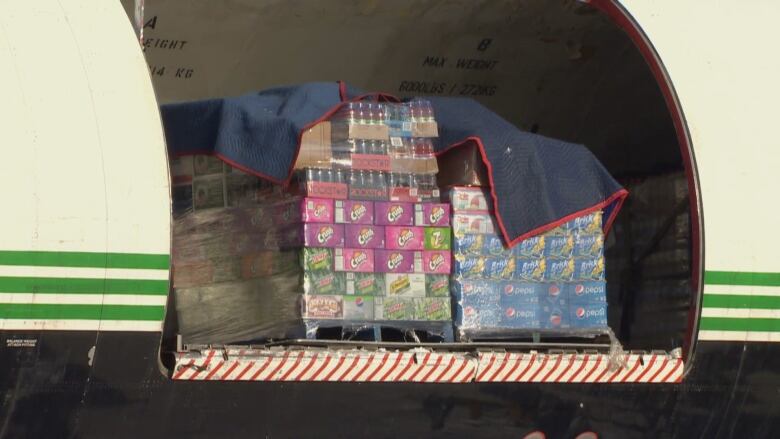N.W.T. planning tax on soda pop for 2018
The aim of the tax is to reduce obesity and diabetes in the territory, says finance minister

Soda pop in the Northwest Territories may soon become a little more expensive thanks to a proposed territorial government initiative to tax sugary drinks.
In his budget speech on Wednesday Finance Minister Robert C.McLeodsaid a sugary drinks tax is being considered as a way to discourage consumption and cut down on obesity and diabetes in the territory.
"While our intention is to introduce a sugary drink tax in 2018-19, we will take the time during the upcoming fiscal year to ensure our approach is as effective as possible,"McLeodsaid.
According to a 2014 report from the N.W.T. Bureau of Statistics,32.2 per centof adults living inthe Northwest Territories are obese. The Canadian average is 20.2 per cent(Statistics Canada, 2014).
On budget day,McLeoddid not elaborate on the idea, but some details were previously provided in a February, 2016 report from the finance minister titled, "Northwest Territories Revenue Options."
According to the report, studies found that if the tax rate on sugary drinks is high enough, the increase in prices will discourage consumption. However, other studies showedthe tax had a minimal impact on reducing total caloric intake.
The report also states that the tax will have a greater effect on low income individuals since, "low income individuals tend to consume more sugary drinks." But, since modifying social behavior is the goal, the regressive tax "may not be an issue."
The territorial government proposes the tax could be administered similar to the current tobacco tax. It projects revenues to be minimal likely not enough to cover the cost of administration.
Not convinced
The vice principal of the secondary school in Fort Simpson, N.W.T., said the schoolhas not offered sugary drinks for purchase on school grounds for at least a decade, but students still buy soda pop between classes.
"We have water bottles and water fountains that the kids seem to be taking advantage of," said John Forbes, vice principal for Thomas Simpson Secondary School.
"But they do also head to the store at lunchtime to buy pop."
Forbes is not convinced that a tax on soda will limit consumption by teenagers in Fort Simpson.
"It's not their money that they're using, it's probably more like their parents," Forbes said. "They probably don't really consider the tax in the equation of buying it.
"The sugar probably outweighs the tax."
Meanwhile in Ottawa
AMarch2016Senate report titled, "Obesity in Canada,"urged the federal government to consider a national tax on sugary drinks.
The Heart and Stroke Foundation of Canada also lobbied Ottawa to impose a tax.
CBC News has since reported the federal government has researched the idea, and while there is no commitmentfor or against, expects the idea to come again ahead of next year's budget.
A sugary drinks tax is currently in place in Mexico. A recent study on that tax suggestsit could save thousands of lives and $1 billion US in health care costs by preventing cases of diabetes.












_(720p).jpg)


 OFFICIAL HD MUSIC VIDEO.jpg)
.jpg)



























































































